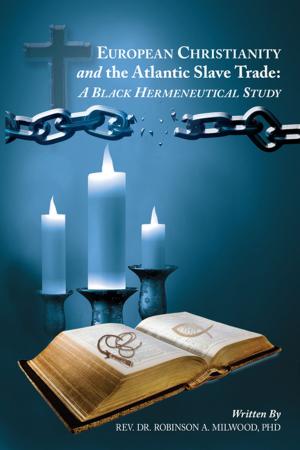British Ingenuousness
Nonfiction, Science & Nature, Science, Other Sciences, Philosophy & Social Aspects| Author: | Juleon M. Schins | ISBN: | 9781504996952 |
| Publisher: | AuthorHouse UK | Publication: | December 22, 2015 |
| Imprint: | AuthorHouse UK | Language: | English |
| Author: | Juleon M. Schins |
| ISBN: | 9781504996952 |
| Publisher: | AuthorHouse UK |
| Publication: | December 22, 2015 |
| Imprint: | AuthorHouse UK |
| Language: | English |
One often hears the following: Believers and agnostics alike, everybody seems convinced that God (or something out there) has but little influence on our material world: the more we know scientifically, the less room is left for God to influence material reality. Well, the opposite is true. The more we scientifically know about our material world, the more God seems to run everything down here, with us humans filling some tiny leftover gaps. The belief that everything is matter, and that only humans (and eventually animals) make choices with material consequences, is incompatible with quantum mechanics but widely accepted among the ingenuous. Ingenuousness is roughly identical throughout the occidental world, be it Christian or ex-Christian. Yet every country has its own specific traits. That is the reason this book, directed to the British, is called British ingenuousness; however, the title is not at all meant to suggest that the British are more naive than any other people. The book contains two parts: five chapters and five appendices. The five chapters describe the authors view on the social consequences of occidental ingenuousness, and the appendices, the philosophical roots of that ingenuousness. The chapters describe typical aspects of occidental ingenuousness: that of young girls, who think their sexy looks enhances their odds to find love; that of clergymen, who seem to think we still live in the Garden of Eden; that of legislators, who do not manage to reduce British recidivism below 26 per cent, with an average of three offences per reoffender; that of adult women, who have not the slightest idea how to remedy gender discrimination; that of retrograde ecologists, who believe carbon dioxide is poisonous, that our universe was optimal in 1980 and should not change anymore; and finally, though most demanding to grasp, the ingenuousness of adults, who believe were not doing so bad after all.
One often hears the following: Believers and agnostics alike, everybody seems convinced that God (or something out there) has but little influence on our material world: the more we know scientifically, the less room is left for God to influence material reality. Well, the opposite is true. The more we scientifically know about our material world, the more God seems to run everything down here, with us humans filling some tiny leftover gaps. The belief that everything is matter, and that only humans (and eventually animals) make choices with material consequences, is incompatible with quantum mechanics but widely accepted among the ingenuous. Ingenuousness is roughly identical throughout the occidental world, be it Christian or ex-Christian. Yet every country has its own specific traits. That is the reason this book, directed to the British, is called British ingenuousness; however, the title is not at all meant to suggest that the British are more naive than any other people. The book contains two parts: five chapters and five appendices. The five chapters describe the authors view on the social consequences of occidental ingenuousness, and the appendices, the philosophical roots of that ingenuousness. The chapters describe typical aspects of occidental ingenuousness: that of young girls, who think their sexy looks enhances their odds to find love; that of clergymen, who seem to think we still live in the Garden of Eden; that of legislators, who do not manage to reduce British recidivism below 26 per cent, with an average of three offences per reoffender; that of adult women, who have not the slightest idea how to remedy gender discrimination; that of retrograde ecologists, who believe carbon dioxide is poisonous, that our universe was optimal in 1980 and should not change anymore; and finally, though most demanding to grasp, the ingenuousness of adults, who believe were not doing so bad after all.















